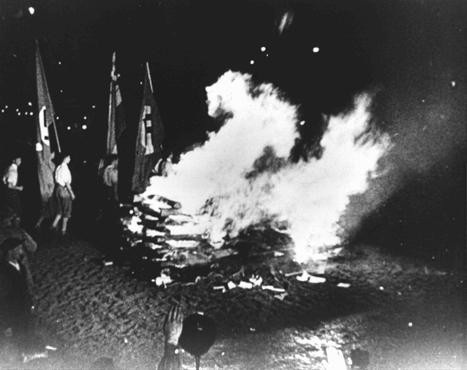
Ben Hecht
Ben Hecht (1893-1964) was an American Jewish journalist, novelist, and playwright.
Although Hecht was primarily a writer of Hollywood film scripts, his best known work is The Front Page, a play that he co-authored with Charles MacArthur in 1928.
Hecht had little to do with Judaism and Jewish affairs until the Nazis seized power. After 1933 Hecht became increasingly involved in anti-fascist and anti-Nazi activities. His play To Quito and Back (1937) reflected this change of attitude.
In September 1941 Hecht was contacted by Peter H. Bergson and agreed to join Bergson's network. He found that his previous contacts in the press and in Hollywood could be used to the advantage of the delegation that represented the underground Irgun, the military arm of the Revisionist Zionist movement. Hecht proceeded in two ways.
First, he used his own experience as a journalist to craft a series of full-page newspaper advertisements. One of them, which read "For Sale To Humanity 70,000 Jews Guaranteed Human Beings at $50 A Piece" (New York Times, February 16, 1943, p. 1), brought the Holocaust to public attention.
Second, Hecht used his extensive contacts in Hollywood to create the We Will Never Die pageant. Co-authored by Hecht and Moss Hart, the pageant, which was staged in Madison Square Garden on March 9-10, 1943, and then later played in five other cities, became a centerpiece in the Emergency Committee to Save the Jewish People of Europe's campaign to create an American rescue policy after the failure of the Bermuda Conference.
In 1944 Hecht published A Guide for the Bedeviled, a highly controversial analysis of antisemitism.
Hecht continued his activities on behalf of the Bergson group after World War II. In addition to propaganda work, including his 1946 stage play A Flag is Born, Hecht was involved in fundraising and in recruiting for the Irgun.
One of the Aliyah Bet ("illegal" immigration) ships sent by the Irgun bore Hecht's name. Hecht was one of the organizers of the June 1948 voyage of the Altalena, a ship that carried arms and immigrants to Israel. While the immigrants and the majority of the weapons were allowed to disembark, the Israeli government was adamant that the Irgun surrender the weapons to the newly created Israeli army. When the Irgun refused, the Israeli government sank the ship.
Hecht withdrew from Zionist activities after the Altalena affair. He did, however, retain his highly partisan position, as reflected in his autobiography, A Child of the Century (1954), and in his book Perfidy (1961), a sensationalized account of the Rezsö Kasztner affair and the negotiations to ransom Hungarian Jewry.
Critical Thinking Questions
What pressures and motivations may have affected Hecht’s decision to bring attention to the plight of the Jews in Europe?
How can individuals contribute to or assist in the rescue of endangered citizens of other nations?

